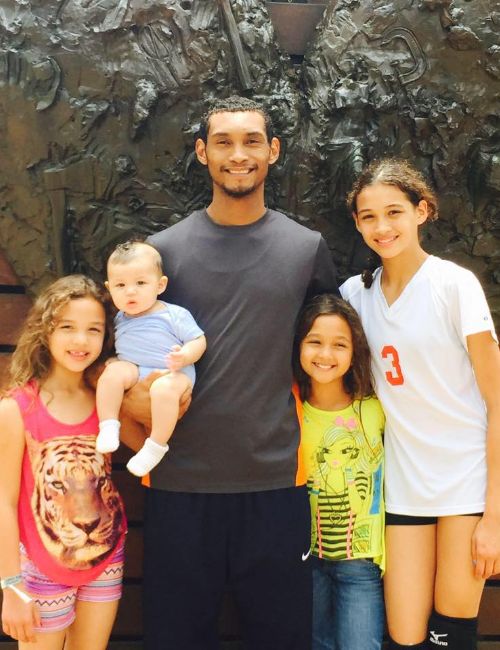Mya children represent a topic of significant interest and curiosity for many people worldwide. Whether you're a parent, educator, or simply someone intrigued by the concept, understanding mya children can provide valuable insights into their unique characteristics, challenges, and potential. With a focus on fostering inclusivity, compassion, and support, this comprehensive guide delves into everything you need to know about mya children.
From their developmental milestones to educational needs and even their influence on society, mya children hold a special place in our communities. This article not only sheds light on who they are but also provides actionable strategies to help them thrive in various settings. By unpacking their unique qualities and requirements, we aim to build a more informed and empathetic perspective toward them.
In the following sections, we’ll cover a detailed biography, essential personal details, and address key questions about mya children. Alongside expert insights, real-life examples, and practical advice, you’ll also find answers to frequently asked questions, making this guide an invaluable resource for anyone eager to learn more about mya children.
Read also:Who Is Janet Jackson Dating Now A Deep Dive Into Her Personal Life And Career
Table of Contents
- Biography and Background
- What are the Characteristics of Mya Children?
- How Do Mya Children Differ from Others?
- Developmental Milestones of Mya Children
- Educational Needs and Support
- Why is Early Intervention Important for Mya Children?
- Social Integration and Inclusivity
- Parenting Tips for Mya Children
- How Can Schools Better Support Mya Children?
- Common Misconceptions About Mya Children
- Role of Community in Supporting Mya Children
- What are the Challenges Faced by Mya Children?
- Success Stories of Mya Children
- Frequently Asked Questions
- Conclusion
Biography and Background
Mya children are often defined within the context of their unique characteristics, developmental needs, and the societal roles they play. While the term "mya children" might be unfamiliar to some, it encompasses a concept that has relevance to many aspects of child development, education, and parenting. Understanding their background and what makes them distinct can help foster a better environment for their growth and success.
Personal Details and Bio Data
| Attribute | Details |
|---|---|
| Name: | Mya Children |
| Focus: | Child Development and Education |
| Key Characteristics: | Unique learning needs, developmental milestones |
| Importance: | Inclusivity and societal development |
| Support System: | Parents, educators, and community |
What are the Characteristics of Mya Children?
Mya children often exhibit a range of unique characteristics that set them apart from their peers. These traits may include distinct learning styles, emotional sensitivities, or developmental patterns. While no two mya children are the same, understanding some common characteristics can help in providing the right support and environment for their growth.
- Enhanced creativity and imagination
- Strong emotional intelligence
- Unique problem-solving abilities
- Potential challenges with traditional learning methods
By recognizing these traits early, parents and educators can tailor their approach to nurturing the strengths of mya children while addressing their challenges effectively.
How Do Mya Children Differ from Others?
One of the most compelling aspects of mya children is how they differ from their peers in terms of learning, behavior, and social interactions. While many children follow a predictable developmental trajectory, mya children might take a different path, often characterized by unique challenges and strengths.
Key Differences
Some of the key differences include:
- Unconventional learning styles
- Heightened sensory sensitivities
- Strong focus on specific interests
- Social interaction challenges or strengths
Understanding these differences is essential for creating a supportive environment that enables mya children to flourish.
Read also:Bebe Rexha Boyfriend A Look Into Her Love Life And Personal Details
Developmental Milestones of Mya Children
Like all children, mya children go through various developmental milestones. However, the pace and nature of these milestones might vary, making it essential to monitor their growth closely and provide the necessary interventions when required.
Typical Milestones
Here are some areas where mya children may excel or require additional support:
- Language and communication skills
- Cognitive development
- Social and emotional growth
- Physical abilities
Regular assessments and open communication among parents, educators, and medical professionals can ensure that mya children receive the care and support they need at every stage of life.
Educational Needs and Support
Education plays a critical role in the development of mya children. However, traditional classrooms may not always cater to their unique needs. This section explores how schools and educators can adapt to provide a more inclusive and effective learning environment for mya children.
Strategies for Educators
Some effective strategies include:
- Personalized learning plans
- Interactive and hands-on teaching methods
- Incorporating technology into the classroom
- Regular feedback and progress tracking
By adopting these strategies, educators can ensure that mya children receive the education they deserve, paving the way for a brighter future.
Why is Early Intervention Important for Mya Children?
Early intervention is often the key to unlocking the full potential of mya children. By identifying their strengths and challenges early on, parents and educators can implement strategies that promote their overall development and well-being.
Research shows that early intervention can lead to:
- Improved academic performance
- Better social skills
- Enhanced emotional resilience
- Greater self-confidence
For parents and caregivers, seeking professional guidance and resources as soon as possible can make a world of difference in the lives of mya children.
Social Integration and Inclusivity
Social integration is a vital aspect of the lives of mya children. Encouraging inclusivity within schools, communities, and families can help them feel accepted and valued.
How to Foster Inclusivity?
Here are some ways to promote inclusivity:
- Encourage peer interactions and friendships
- Teach empathy and understanding to other children
- Organize inclusive activities and events
- Provide mentorship opportunities
Inclusivity not only benefits mya children but also creates a more compassionate and understanding society as a whole.

